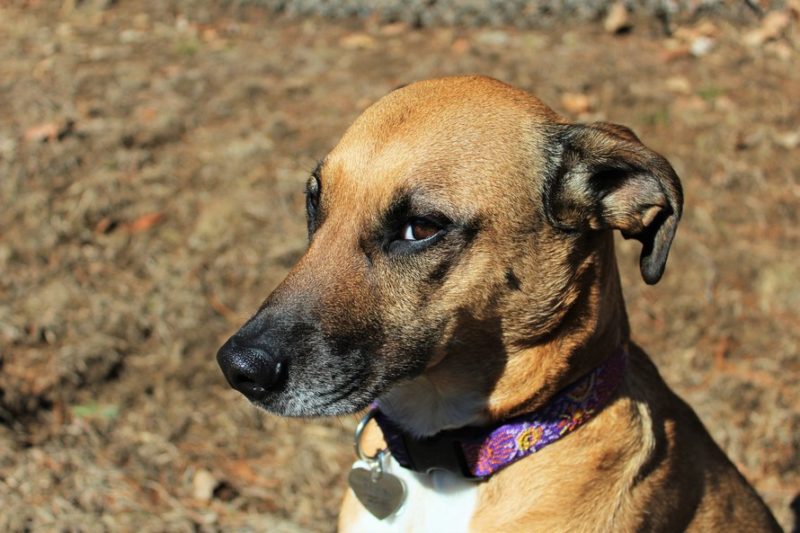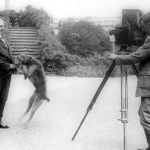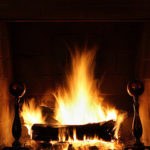It’s summer—time to gather friends and family in the backyard to enjoy food fresh off the grill. You know who really enjoys cookouts? Dogs, that’s who. There are soft-touch guests to ply for handouts, half-finished plates of food within reach, unguarded trash—all heavenly temptations for Fido.
Here’s a quiz to boost your knowledge of canine cookout hazards.

Canine Cooking Hazards Quiz
True or False: Eating this food is likely to land your dog in the emergency room.
Barbecued chicken
False. Eating chicken bones might make a dog vomit or have diarrhea, but it’s rare for chicken bones to obstruct a dog’s stomach or small intestine. This does not mean that you should give your dog chicken bones on purpose—just that you needn’t rush him to the ER if he eats one or two.
Shrimp skewers
True. The problem is not the shrimp, but rather the thin wooden skewers they are grilled on. These skewers soak up delicious flavors, and many a dog has swallowed them, only to have them puncture his esophagus, stomach, or intestines. If you’re sure your dog has eaten a grilling skewer, call your vet for advice. If you think he may have eaten a skewer but you’re not sure, keep a close eye on him over the next 72 hours, and call your vet if he vomits, has diarrhea, seems to have abdominal pain, or loses his appetite.
Hot dogs, hamburgers, and buns
Mostly false. I’ve heard rumors that eating buns, or bread in general, is dangerous for dogs. Not true, unless they eat a plastic package full of buns, because in that case the plastic could cause a GI obstruction. Hot dogs and hamburgers themselves are unlikely to cause serious problems, unless they are so hot they burn the esophagus on the way down.
It is theoretically possible for a dog to swallow a hot dog whole and have it get stuck in his esophagus, or to inhale a chunk of hotdog into his trachea, but that is exceedingly rare. If your dog did get something stuck in his esophagus or trachea, you would know immediately, because he would be unable to stop choking or coughing and would clearly be in distress. (This is different from the intermittent cough or gag that is commonly seen with kennel cough or collapsing trachea.) If that should occur anytime—cookout or no cookout—you should immediately take your dog to your vet or the nearest veterinary emergency clinic.
Corn on the cob
True. How do dogs manage to swallow corncobs, whole or in chunks? I have no idea, but they do. Corncobs one of the most common objects vets are called on to remove surgically from a dog’s stomach or small intestine. So don’t give your dog corncobs to chew on, and make sure you dispose of them in a dog-proof trashcan.
S’mores
False. Most people know that chocolate is toxic to dogs, potentially causing tremors, heart arrhythmias, and seizures. Fortunately, the milk chocolate commonly used to make s’mores contains much less theobromine (the dog-toxic component) than extra-dark or unsweetened chocolate, and eating a square or two of milk chocolate is unlikely to make any but the smallest dog sick. Again, this doesn’t mean you should give your dog chocolate on purpose—there’s no sane reason to do that.
Now that you have a clearer picture of the risks, you can create a plan to keep your dog out of trouble at your next cookout. Maybe he needs to be inside while food is being served and cleared away, or family members can take turns supervising him on a leash. Make sure your trash containers are dog-proof, and throw away bones, skewers, food scraps, and paper plates as soon as you’re done with them. Giving your dog a special chew treat or food-dispensing dog toy during the cookout is a nice way to keep him busy and let him enjoy the party as well.





No Comments